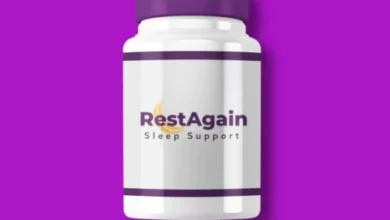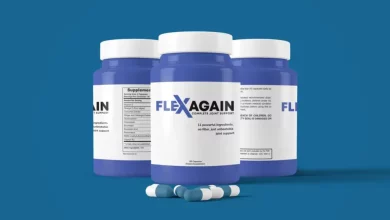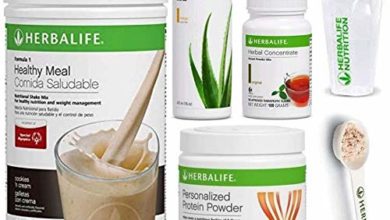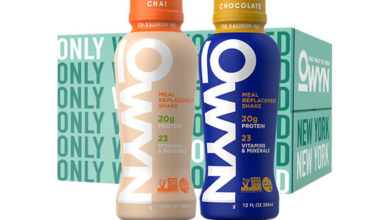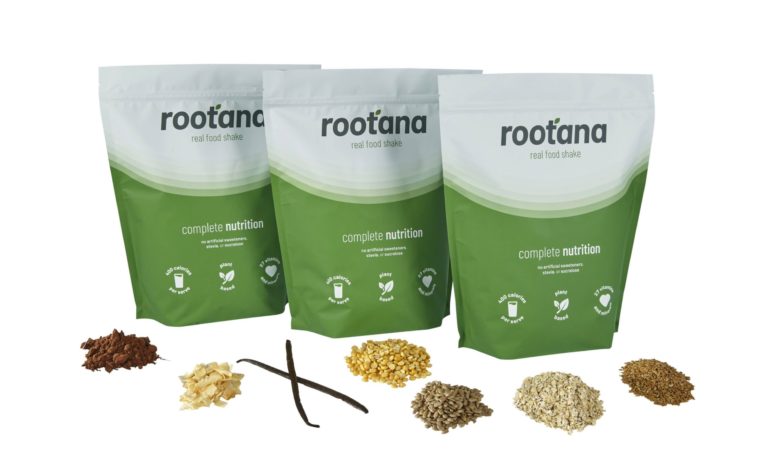
Rootana Meal Replacement Review
Rootana meal replacement is a new meal replacement shake that avoids using artificial sweeteners, preservatives, or colourings. It is soy-free, lactose-free, non-GMO, and non-irradiated. This meal replacement is ideal for anyone who wants health benefits without any hidden ingredients in the formula.
But how good is Rootana? In this article, we will be taking an in-depth look at the ingredients list, discussing the pros, the cons, and everything in between.
Rootana Meal Replacement Review Summary
For a long time, meal replacement shakes had a reputation for being packed with artificial ingredients. Today, the vast majority prioritise real food ingredients over ingredients such as dextrose or maltodextrin. But even the most health-conscious companies will use artificial sweeteners.
For those looking to avoid them completely due to personal preference, a dislike of the taste, or allergies, there was nowhere to turn. Rootana is the first meal replacement shake to completely avoid artificial sweeteners while remaining low-calorie and delicious.
Pros
- High in protein
- High in fibre
- Low GI carbohydrates
- Free from artificial sweeteners, preservatives, colours
Cons
- Only 3 flavours are available
- Only available from the Rootana website
Rootana Meal Replacement Ingredients List
Rootana uses a small ingredients list packed full of nutrients. We will take a look at the six most important ingredients. We won’t review the vitamins and mineral complex as its benefits are obvious (plus it contains 24 different vitamins and minerals!).
Oat Flour Powder
The main carbohydrate source in Rootana is oat flour. There are a number of reasons for this. Oat flour is low GI, meaning you will get a slow and steady stream of energy rather than a spike and crash (like you would with a high-sugar carb).
Oats are well known for their health benefits, with studies linking them to a reduced risk of heart disease [1], and a reduced risk of certain cancers [2]. Oats are also known to aid weight loss due to their ability to increase satiety and reduce energy intake [3].
The ability of oats to increase satiety should not be overlooked here. It is what makes them so effective for weight loss diets. The idea behind dieting is to reduce your calorie intake in as safe and sustainable ways as possible. By consuming oats, you can lower your calories yet still feel full after your meal.
The fibre in oats can also help to improve your digestion and your gut health, which has many knock-on benefits. Oats also help to improve the taste and consistency of the shake. This is a superbly chosen ingredient.
Pea Protein Isolate
The pea protein isolate in Rootana comes from yellow peas and is one of the best plant-based protein sources available. Pea protein has been shown to be just as effective as whey protein. It is a complete protein, meaning that it contains all of the amino acids required for muscle growth. It is also very high in branched-chain amino acids (BCAAs).
Protein has many health benefits. It can help with muscle growth, but during a diet, its main role is muscle preservation. During many diets, if the protein isn’t high you can expect to lose some muscle.
Luckily, increasing your protein intake can help to protect your muscles while you burn body fat. Protein can also help to increase satiety, making you feel fuller for longer after a meal. This makes it easier to consume fewer calories and lose weight.
A 2017 study that compared a high protein diet to a standard diet found that the high protein diet group lost significantly more weight over a 6-month period [4].
Golden Milled Flaxseed
Flaxseed is an incredibly useful ingredient as it contains the building blocks of omega 3 fatty acids, which have many benefits for your heart health. Omega 3s can also help with recovery from exercise and they can reduce the risk of depression and anxiety.
Studies have shown that flaxseed can lower your blood pressure, a 2016 study found that flaxseed can reduce both systolic and diastolic blood pressure [5], most likely due to the high number of lignans found in flaxseed.
Due to the fibre found in flaxseed, it can also be effective (like oats) at regulating appetite and reducing the number of calories you consume throughout the day. Flaxseed also contains some protein, that has many health benefits (see above).
Sunflower Seed Oil
Rootana gets its fat content from sunflower seed oil, a high-quality oil rich in oleic acid. Sunflower oil also contains vitamin E and vitamin K and is a good source for antioxidants. The higher the quality of sunflower seed oil, the more linoleic acid it contains. This can help with reducing your calorie intake for the day, and has many heart-health related benefits.
Coconut Sugar
Rootana does not use artificial sweeteners or stevia, nor does it use regular sugar as this is high in calories and has no nutritional benefit. Instead, Rootana uses coconut sugars. Not only are these completely natural, but they are also very low calorie. Coconut sugars are also a source of fibre, potassium, zinc, calcium, and antioxidants.
Sunflower Lecithin
This ingredient is another natural product used to help improve the mixability of Rootana as well as its stability. Sunflower lecithin can also help with improving blood flow to the brain, which can lead to improved cognition and boosted mood.
Rootana Meal Replacement Ingredients Review
The ingredients found in Rootana are high quality, and effective, and there are no filler ingredients. Each ingredient justifies its inclusion, and we particularly approve of the use of flaxseed and pea protein isolate, two smart ingredients with multiple health benefits.
The oat flour powder is also great, and it is no surprise that so many meal replacement shakes use it. The macros are excellent; 400 calories, 20 grams of protein, and 7-9 grams of fibre (dependant on flavour) are ideal for weight loss and healthy long-term weight maintenance.
Where Rootana really shines though, is in its use of real food ingredients for roles which other companies would delegate to lab-created ingredients. Coconut sugars for sweeteners, sunflower lecithin for stability and mixability. Very impressive!
Is Rootana Meal Replacement Safe?
Yes, Rootana uses all-natural ingredients and was designed to be as hypoallergenic as possible. It avoids common allergy-causing ingredients such as dairy or soy. It also avoids artificial sweeteners which some people can also be allergic to.
How to Take Rootana Meal Replacement Shake
Rootana can be used to replace up to three of your daily meals, though most people use it for one or two. The most common method is to replace the meal that you are most likely to struggle with (usually breakfast or lunch) and then focus on improving the nutrition of your remaining meals.
Grab a shaker and fill it with 500 ml of very cold water. Next, you want to add 5 tablespoons of Rootana powder (100 grams) to the water. Attach the lid securely and then shake your shaker vigorously for 10-20 seconds.
You can of course, create your own shakes using Rootana. Replacing water with milk or a dairy-free alternative such as almond milk can create a creamier flavour. However, this will also increase the number of calories for each shake. Adding in fruit, peanut butter, ice, honey, or other natural sweeteners can also help to transform this shake to your liking.
Rootana even has an article explaining exactly how to do this.
Rootana Meal Replacement Review
Rootana is a seriously good meal replacement shake, and a lot of effort has been put into making it environmentally safe as well as free from artificial ingredients. But it is also a fantastic shake in its own right. The shake is high in protein, high fibre, and packed full of vitamins and minerals. It tastes great, mixes well, and is highly convenient in terms of prep, cost, and storage. If you’re looking for a new meal replacement shake, we highly recommend you try rootana here.
